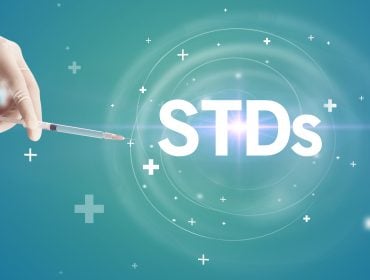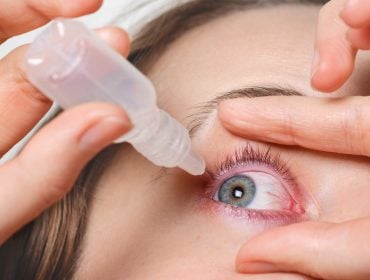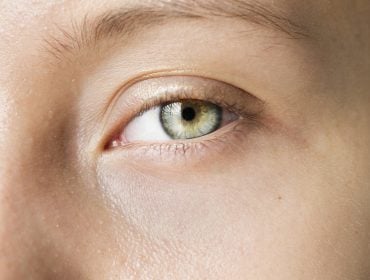How to Predict a Herpes Outbreak Before it Happens
Herpes simplex virus (HSV) presents a considerable challenge due to its recurrent nature, manifesting in outbreaks that are both physically uncomfortable and emotionally distressing. Recognizing the signs of an imminent outbreak can empower individuals to manage their condition proactively.
Early detection is key for intervention and mitigation.
The understanding of herpes simplex virus has evolved, spotlighting the prodromal phase, early signs and symptoms before an outbreak, as a critical window for intervention to potentially lessen the severity of an episode.
Recognizing Early Warning Signs
Prodromal symptoms can surface hours to days before an outbreak. Tingling, itching, or numbness in the affected area often serves as the herald of impending lesions. In some individuals, these sensations may be accompanied by systemic symptoms such as fever, malaise, or swollen lymph nodes, signaling the activation of the body’s immune response to the herpes simplex virus. Understanding one’s “pre-outbreak” indicators can enable preemptive antiviral treatment, possibly mitigating the outbreak’s impact.
Prodrome Phase Symptoms
The prodrome phase signals an impending herpes outbreak, subtle yet discernible bodily cues indicating viral reactivation. Herpes simplex virus activation precedes visible symptoms, making early detection critical for preemptive interventions. Recognizing sensations like tingling, itching, or numbness around the affected area is essential, as these can herald the onset of an outbreak, offering a window for action. Proactive management strategies, including antiviral therapy and stress reduction, may mitigate the outbreak’s severity if initiated during this phase.
Physical Sensations to Notice
Individuals with herpes simplex virus (HSV) often report distinct sensations prior to the appearance of lesions. A common precursor is a feeling of discomfort in areas where the virus typically manifests, which can serve as a telltale sign of an impending outbreak.
For example, some individuals experience what is known as the prodrome phase, characterized by sensory changes such as tingling, burning, or itching on or around the lips for oral herpes, or genital areas for genital herpes. These prodromal symptoms can start hours or days before the actual skin changes occur, providing a crucial window for potential intervention to lessen the severity or even prevent the outbreak entirely. Increased sensitivity or pain in the affected region is also common, often accompanied by a feeling of pressure or fullness.
Additionally, people may notice a variety of systemic symptoms that accompany these sensory changes. Flu-like symptoms, including fever, headaches, muscle aches, and swollen lymph nodes, can precede the outbreak. Recognizing these systemic indicators is vital as they can contribute to an early diagnosis and timely therapeutic measures.
Ultimately, the key is to cultivate an awareness of one’s unique set of prodromal sensations. With attentive observation of these signals, individuals can take preemptive steps such as beginning antiviral medication, adjusting lifestyle factors, and managing stress, which may ward off the outbreak or reduce its intensity. Regular consultation with a healthcare provider can also aid in developing a tailored management plan to handle these initial symptoms effectively.
Lifestyle Factors and Outbreak Triggers
Lifestyle choices such as diet, sleep patterns, and exposure to UV light can influence herpes outbreak frequency. Emotional stress is a notorious trigger that can compromise one’s immune function, potentially ushering in an outbreak.
Indeed, for many individuals, stressful episodes correlate strongly with the emergence of herpes symptoms. Conscious management of stress through relaxation techniques, along with adequate rest and nutrition, plays a crucial role in mitigating the onset of an outbreak.
Moreover, substances like alcohol, caffeine, and certain foods may act as catalysts for herpes flares. Identifying personal triggers and crafting a lifestyle that minimizes exposure to them is instrumental in managing herpes.
Identifying Personal Triggers
Herpes outbreaks are often precipitated by specific individual triggers. Recognizing these personal factors is crucial to preempting episodes and managing the condition effectively. For instance, some may find that consumption of certain foods or ingredients—such as chocolate, nuts, or artificial sweeteners—can herald the onset of an outbreak. Similarly, physical stressors, including menstrual cycles in women or intense physical exertion, have been noted to provoke herpes symptoms. Charting and observing these correlations can be vital in developing a personalized preventive strategy.
Environmental conditions such as extreme weather or prolonged exposure to sunlight have been reported to act as catalysts for herpes outbreaks. By identifying such factors through careful observation and possibly maintaining a diary of events preceding an outbreak, an individual can adapt their lifestyle to mitigate these risks.
Understanding one’s body and the influence of various stressors, whether they be dietary, hormonal, environmental, or emotional, can prove invaluable. Engaging in proactive measures such as avoiding known triggers, staying hydrated, and pursuing a nutritionally balanced diet, may decrease the likelihood of outbreaks or attenuate their severity. Tailored intervention at the earliest signs of an impending episode can bolster one’s defense against the physical manifestations of herpes.
Role of Stress and Fatigue
Stress and fatigue act as significant triggers for herpes outbreaks by compromising the immune system’s efficacy.
- Psychological stress can disrupt immune function.
- Physical exhaustion increases vulnerability to infections.
- Chronic fatigue often precedes the reactivation of the virus.
- Sleep deprivation has been linked to higher rates of outbreaks.
Early recognition of these precipitating conditions allows for timely intervention strategies. Implementing stress reduction and healthy sleep habits can serve as a preventive measure against potential outbreaks.
Proactive Outbreak Management
Prior to the advent of a herpes outbreak, individuals may experience prodromal symptoms, signaling imminent viral reactivation. Recognizing signs like localized itching, tingling, or discomfort is crucial for initiating preemptive antiviral therapy, which can potentially curtail the outbreak’s development. Moreover, bolstering one’s immune system through regular exercise and adequate sleep can provide resilience against the onset of symptoms.
Prudent adjustments to one’s lifestyle, encompassing stress management and nutritional attentiveness, play a pivotal role in mitigating herpes outbreaks. Implementing these strategies not only diminishes the frequency and severity of episodes but also contributes to overall well-being, effectively bridging the gap between reactive treatment and proactive health maintenance.
Dietary Considerations
Optimal nutrition is paramount in maintaining a robust immune system, which is essential in preempting herpes outbreaks.
- Increase Lysine Intake: Consume foods rich in lysine, such as fish, chicken, beef, and dairy products, which may inhibit herpes replication.
- Reduce Arginine Sources: Limit foods high in arginine, like nuts, seeds, and chocolate, as this amino acid can facilitate viral proliferation.
- Incorporate Antioxidants: Add colorful fruits and vegetables, which are high in antioxidants, to counteract oxidative stress that may trigger reactivation.
- Stay Hydrated: Maintaining adequate hydration is critical for overall cellular function and health.
- Limit Alcohol and Caffeine: These substances can impair immune function and potentially promote outbreaks.Balanced intake of these nutrients can potentially suppress the activity of the herpes virus.
Strategic nutritional planning can play a crucial role in lessening the likelihood and severity of herpes outbreaks.
Medication and Suppressive Therapy
Antiherpetic medications, particularly antiviral agents such as acyclovir, valacyclovir, and famciclovir, play a pivotal role in the management of herpes outbreaks. When initiated at the onset of prodromal symptoms, these medications can mitigate the severity and duration of an episode. Suppressive therapy, where antiviral medication is taken daily, can significantly reduce the frequency of outbreaks and may lower the risk of viral transmission to an uninfected partner. This prophylactic approach is particularly beneficial for individuals with frequent recurrences, as it contributes to a better quality of life and improved psychological well-being.
Antiviral Medication Strategies
Antiviral medications are paramount in preempting herpes outbreaks.
- Acyclovir is often prescribed for episodic treatment and suppressive therapy.
- Valacyclovir, a prodrug of acyclovir, offers convenient dosing and enhanced absorption.
- Famciclovir is notable for its prolonged activity against the virus.
- Initiation of treatment at the onset of prodromal symptoms can curb outbreak progression.
- Suppression therapy involves daily medication to prevent recurrences and reduce asymptomatic viral shedding.
Early intervention with antivirals can lessen an outbreak’s impact. Consistent adherence to suppressive therapy can enhance quality of life and decrease transmission risks.
Topical Treatments and Home Remedies
Certain ointments and creams can provide symptomatic relief during a herpes outbreak. These treatments often include ingredients like lidocaine or benzocaine, which numb the area and reduce pain. Applying ice or a warm compress may lessen discomfort and inflammation. Immersing in a warm bath can also soothe affected areas.
Natural compounds like aloe vera gel or tea tree oil may offer relief due to their anti-inflammatory properties. However, it’s imperative to test for skin sensitivity before widespread application to prevent further irritation. While these methods can alleviate symptoms, they are not substitutes for professional medical treatment. Engaging in a comprehensive approach that combines these home remedies with antiviral therapy is paramount for managing herpes effectively. It is crucial to consult a healthcare provider before incorporating new treatment options to ensure compatibility with existing medical strategies.
Medically Reviewed by Colleen Ryan, MD on March 21, 2024
Secure and Confidential
STD testing services
The fastest results possbile - available in 1 to 2 days

Tagged
Categorized As
Author: STD Check Editorial Team
At STDCheck.com, we go to great lengths to ensure quality content. We’re using our own collection of data. It is not bought or made up for “click-bait” purposes. We don’t entice traffic with cheesy graphics or raunchy headlines. Our information is to promote STD testing, educate people, let go of social stigmas, and bring awareness. We also provide a completely confidential atmosphere through private testing. When we produce an article, it is fact-based. We check it with medical advisors that approve it. Our staff consists of doctors and other medical professionals who peer review the content we make available on STDCheck.com. From all over the world, we have sourced the best and the brightest content developers, including medical professionals, marketing engineers, data scientists, content specialists, and media relations.




